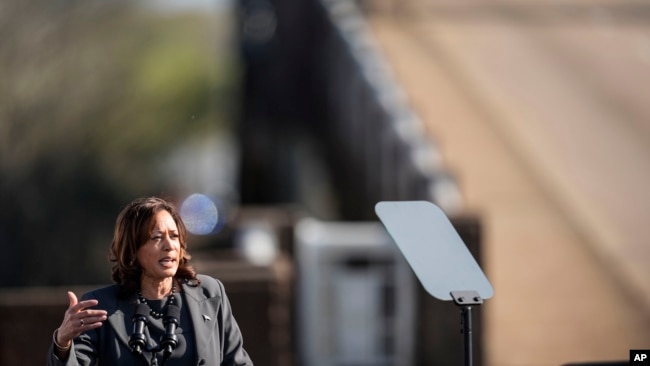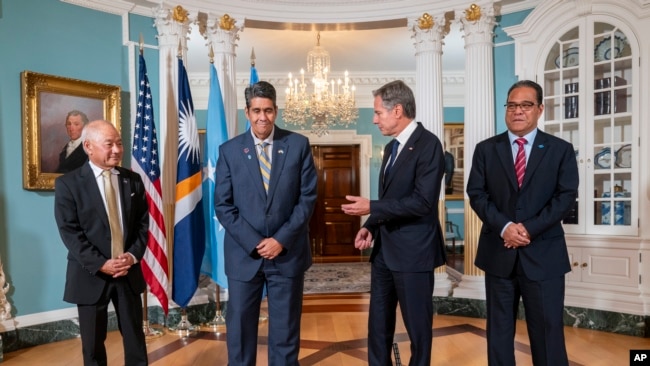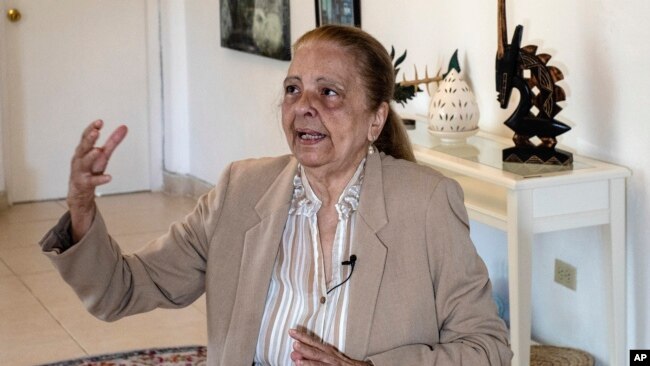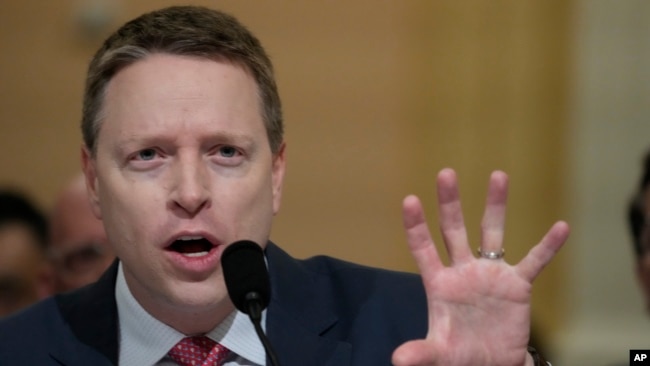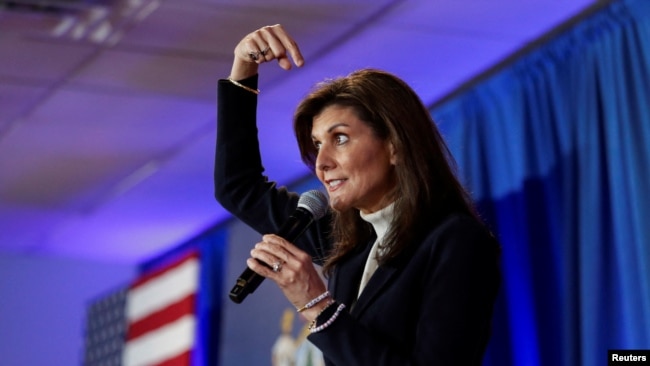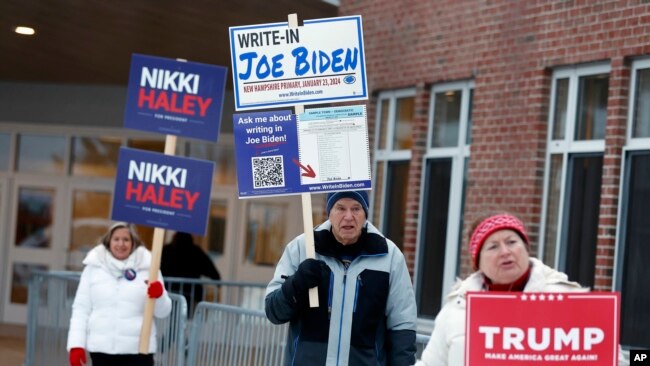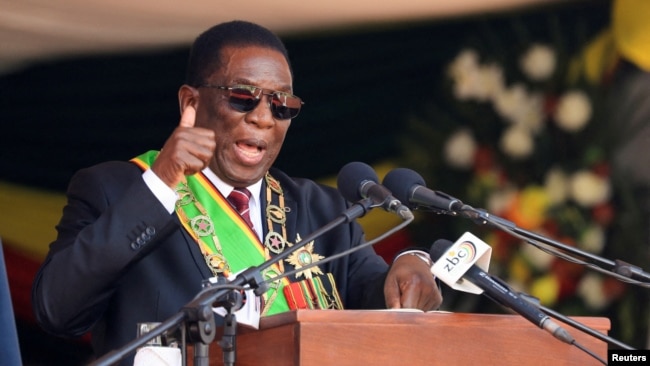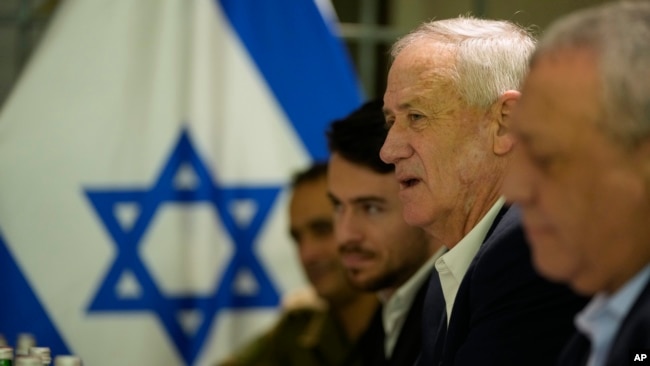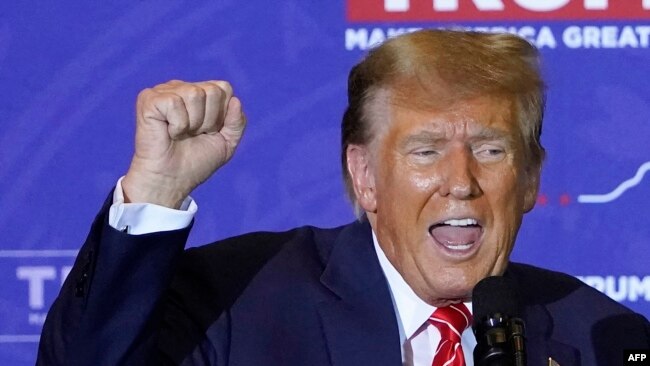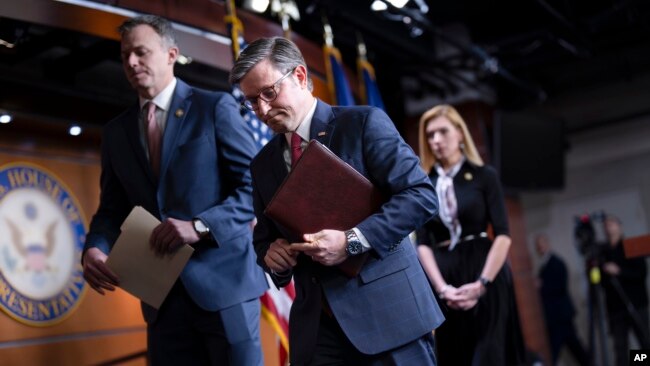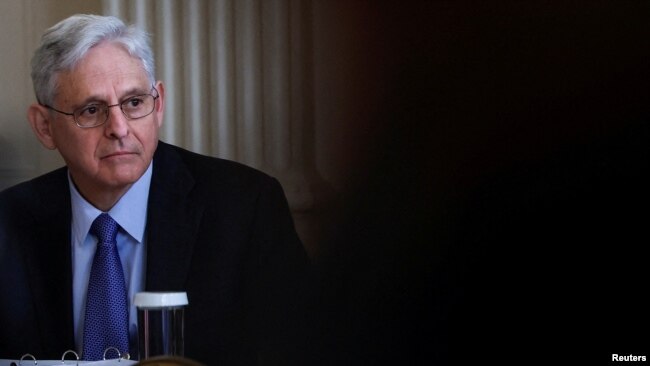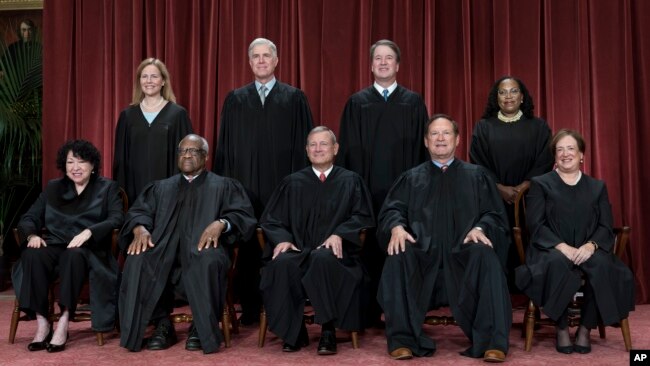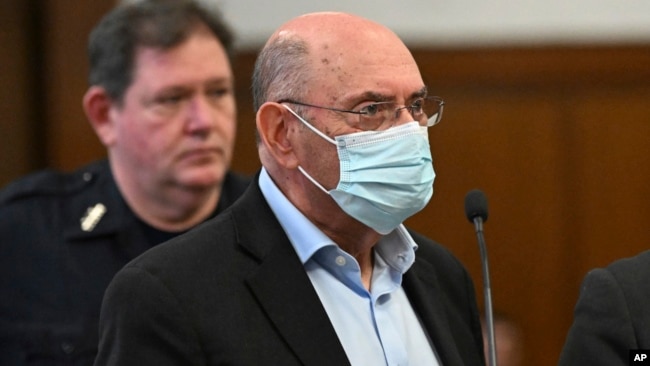유럽이 한파를 맞으면서 러시아의 전력 공급 중단에 대한 두려움이 사라졌습니다
As Europe Weathers Cold Snap, Fears of Russia Power Cutoff Fade
페이지 정보
작성자 Lisa Bryant 작성일 24-01-10 13:39 댓글 0본문
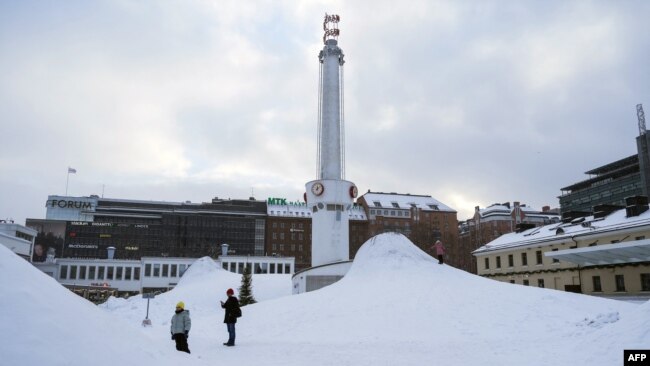
강추위가 핀란드의 수도 헬싱키를 강타한 가운데, 2024년 1월 3일 사람들이 눈으로 덮인 지역에 서 있습니다. 유럽의 많은 부분에 걸쳐 추운 온도에도 불구하고, 분석가들은 유럽이 올 겨울 러시아의 에너지 수입에 덜 의존하고 있다고 말합니다.
People stand in an area covered with snow in the Finnish capital of Helsinki on Jan. 3, 2024, as a cold snap hit the country. Despite the frigid temperatures across much of Europe, analysts say Europe is less dependent on Russian energy imports this winter.
지금 유럽을 사로잡고 있는 차가운 시베리아 날씨가 1년 전, 유럽연합의 수도들을 냉랭하게 만들었을지도 모릅니다. 그들은 또 다른 러시아의 수입품인 에너지를 얻기 위해 안간힘을 쓰고 있었기 때문입니다.
The icy Siberian weather now gripping Europe might have sent a chill through European Union capitals a year ago, as they scrambled to wean themselves off another Russian import: energy.
하지만 이번 겨울에는 추위를 막기 위해 온도조절기가 조금씩 올라감에 따라, 비축량이 바닥날까봐 안달하는 사람들은 거의 없을 것입니다. 독일인들이 앞다퉈 양초를 비축하고 있는 프랑스 마을들과 상징적인 에펠탑을 비롯한 에너지 절약 운동으로 밤이 어두워지게 만든, 혹시 모를 정전에 대한 심각한 경고도 사라졌습니다.
But few are fretting about running out of reserves this winter, as thermostats inch up to keep the cold snap at bay. Gone are dire warnings of possible power cuts that sent Germans scrambling to stockpile candles and French villages — along with the iconic Eiffel Tower — to go dark at night in an energy conservation drive.
독일 마셜 펀드 정책 연구소의 수석 연구원인 제이콥 키르케고르는 "유럽의 에너지 위기는 끝났다"고 말했습니다. "우리가 매우 추운 겨울을 보내더라도, 유럽에서 큰 가스 부족은 발생하지 않을 것입니다. 기반 시설이 개선되었고, 수요는 훨씬 더 낮았습니다. 그리고 그 수요 감소는 영구적입니다."
“Europe’s energy crisis is over,” said Jacob Kirkegaard, senior fellow at the German Marshall Fund policy institute. “Even if we get a very cold winter, there’s not going to be a major gas shortage in Europe. The infrastructure has improved, demand is a lot lower. And that demand reduction is permanent.”
전체 수입의 거의 43%를 차지하는 유럽의 최고 에너지 공급국이었던 모스크바는 우크라이나 전쟁에 대한 EU의 석탄 및 석유 제재와 러시아의 많은 회원국에 대한 가스 차단 덕분에 그 비중이 급격히 감소했습니다. 이 블록은 2027년까지 러시아 가스 수입을 단계적으로 중단할 것을 요구했습니다.
Once Europe’s top energy supplier, accounting for nearly 43% of overall imports, Moscow has seen its share sharply reduced, thanks to EU coal and oil sanctions over the war in Ukraine and Russia's own gas cutoffs to many member states. The bloc has called for phasing out Russian gas imports by 2027.
EU 통계기관인 유로스타트에 따르면, 오늘날 미국과 노르웨이는 유럽의 석유와 가스 공급국 중 최고입니다. 심지어 알제리와 같은 다른 시장을 공략하고 있기도 합니다.
Today, the United States and Norway are Europe’s top oil and gas suppliers, according to EU statistical agency Eurostat, even as the bloc taps other markets such as Algeria.
화석 연료 수요 또한 에너지 절약, 따뜻한 겨울, 그리고 녹색 에너지의 급격한 증가로 인해 감소했습니다.
Fossil fuel demand has also dropped, thanks to a mix of energy conservation, warmer winters and a sharp rise in green energy.
하지만 일부는 자만하지 말라고 경고하고 있습니다. 반군 EU 회원국인 헝가리는 러시아로부터의 에너지 수입을 늘리겠다고 발표한 반면, 또 다른 회원국인 불가리아는 제재 가격 상한선을 초과해 러시아산 원유를 계속 수입할 수 있게 돼 러시아의 전쟁 상자를 늘릴 것이라고 보도했습니다.
But some warn against complacency. Rebel EU member Hungary announced it would ramp up energy imports from Russia, while a loophole allows another, Bulgaria, to continue importing Russian oil above a sanctions price cap — boosting Moscow’s war chest, reports say.
전문가들은 유럽의 청정 에너지로의 전환이 더 빠르고 전체적일 필요가 있다고 말하고 있지만, 다른 전문가들은 유럽이 러시아가 설계한 원자력 발전소의 연료와 서비스를 여전히 모스크바에 의존하고 있다고 지적합니다.
Europe’s transition to clean energy needs to be faster and more holistic, experts say, while others note it remains dependent on Moscow for fuel and services for its Russian-designed nuclear power plants.
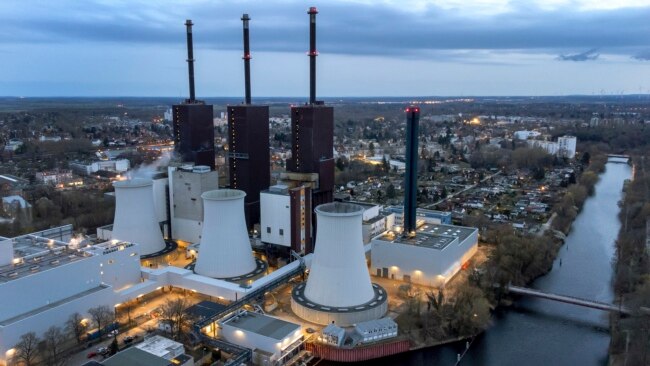
참고 항목: 유럽은 내년 에너지 부족을 피하는 것으로 초점을 옮깁니다
SEE ALSO:
Europe Shifts Focus to Avoiding Energy Shortage Next Year
대서양 연구소 싱크탱크는 9월 분석에서 유럽이 "에너지 전환이 불완전한 상태로 남아 있는 한 러시아의 에너지 탈취 위험에 계속 노출되어 있다"고 썼습니다. 이 연구소는 블록에 러시아로부터의 에너지 분리와 기후 변화 약속을 계속할 것을 요구했습니다.
Europe “remains at risk to Russian energy extortion as long as its energy transition remains incomplete,” the Atlantic Institute think tank wrote in a September analysis that called on the bloc to press on with its energy decoupling from Russia and its climate change commitments.
그럼에도 불구하고, 에너지 시나리오는 유럽인들이 가장 추운 겨울 동안 전력이 고갈될 것을 우려했던 일년 남짓 전과는 확연히 다릅니다. 프랑스 공무원들은 공립학교의 온도 조절 장치를 낮추고 이른 아침 시간 동안에는 시립 거리 조명을 껐습니다.
Still, the energy scenario is sharply different from just over a year ago, when Europeans feared running out of power during the coldest winter months. French officials lowered public school thermostats and turned off municipal street lighting during the early morning hours.
한때 러시아산 가스에 수입의 약 60%를 의존했던 독일은 전력 공급이 중단될 가능성이 낮았지만, 시민들이 차곡차곡 쌓이면서 촛불과 장작이 꺼졌습니다. 덴마크 시민들은 건조기에서 의류 제품으로, 슬로바키아인들은 스토브에서 전자레인지로 바꾸도록 권고받았습니다.
Germany — once reliant on Russian gas for about 60% of its imports — saw a run on candles and firewood as citizens stocked up, even though chances of power cuts were low. Danish citizens were urged to switch from dryers to clotheslines, and Slovaks from stoves to microwaves.
신규 공급자 및 녹색 전력
New suppliers and green power
오늘날 EU의 강대국인 베를린은 노르웨이산 가스로 눈을 돌리고 미국으로부터 액화천연가스(LNG)를 수입하여 부유식 터미널을 임대하고 건설하여 1년 전에는 없었던 인프라를 저장하고 처리하고 있습니다.
Today, EU powerhouse Berlin is turning to Norwegian gas and importing liquified natural gas, or LNG, from the United States, renting and building floating terminals to store and process supplies — infrastructure it didn’t have a year ago.
상대적으로 저렴한 러시아산 가스 없이, 유럽연합의 화학제품과 비료 산업들은 생산을 줄이고 있습니다. 대신 이 지역은 그런 제품들을 수입하고 있습니다. "유럽에서는 더 이상 그런 종류의 제품을 생산하는 사업 사례가 없습니다." 라고 분석가 키르케고르가 말했습니다.
Without relatively inexpensive Russian gas, EU chemical and fertilizer industries are scaling back production. The region is importing such goods instead. “There’s no longer a business case for that kind of production in Europe,” analyst Kirkegaard said.
EU의 행정부가 2050년 훨씬 전에 화석 연료를 단계적으로 없애겠다고 약속하면서, 이 블록은 또한 최근 몇 달 동안 청정 에너지로의 전환을 가속화했습니다. 키르케고르에 따르면, 탄소 배출을 상쇄하기 위한 높은 유럽의 탄소 거래 가격은 또한 "기업들이 화석 연료를 퇴출하는 거대한 동기"를 제공했다고 합니다.
The bloc has also accelerated its transition to clean energy in recent months, with the EU’s executive arm vowing to phase out fossil fuels well before 2050. High European carbon-trading prices to offset carbon emissions have also provided “a huge incentive for businesses to exit fossil fuels,” according to Kirkegaard.
"화석연료를 중심으로 한 성장 모델은 단순히 쓸모가 없습니다," 라고 우르술라 폰데어라이엔 유럽연합 집행위원장이 작년에 말했습니다.
"A growth model centered on fossil fuels is simply obsolete," European Commission chief Ursula von der Leyen said last year.
참고:
SEE ALSO:
러시아, 유럽 가스 공급 차단 가능성 IEA 경고
Russia Could Cut Off Gas Supply to Europe, IEA Warns
그러나 비평가들은 브뤼셀에서 급증하는 수사와 약속들이 유럽의 수도들에서 항상 구체적인 행동으로 옮겨지지는 않는다고 말합니다.
Yet critics say soaring rhetoric and promises made in Brussels do not always translate into concrete action in European capitals.
"우리는 긍정적인 경향과 좋은 시너지 효과를 보았습니다."라고 파리에 기반을 둔 싱크탱크인 자크 들로르 연구소의 에너지 센터장인 카밀 데파르는 말했습니다. 유럽의 기후 목표가 달성될 수 있도록 더 많은 자금과 조정을 요구하고 있습니다.
“We’ve seen positive trends and good synergies,” said Camille Defard, who heads the energy center at the Jacques Delors Institute, a Paris-Based think tank that is calling for more funding and coordination to ensure Europe’s climate goals are met.
그녀는 "그러나 지금까지 시행된 조치들은 유럽의 효과적인 행동을 촉진하기에는 너무 일시적이고, 너무 자발적이며, 너무 국가적입니다"라고 말했습니다
“However,” she said, “the measures that have been implemented so far are too temporary, too voluntary and too national to really foster effective European action.”
모스크바에 관한 한 모든 유럽연합 회원국들도 마찬가지입니다. 예를 들어, EU의 허점으로 인해 불가리아는 합의된 배럴당 60달러의 가격 상한선을 초과해 러시아산 원유를 수입할 수 있다고 폴리티코는 보도하면서, 러시아가 우크라이나 공세를 펼칠 수 있다는 러시아의 이익을 증진시켰습니다. 스페인은 모스크바로부터 상당한 LNG 공급을 계속 공급받고 있고, 헝가리의 빅토르 오르반은 겨울용 가스 수입을 강화하고 있습니다.
Nor are all EU members on the same page when it comes to Moscow. An EU loophole allows Bulgaria, for example, to import Russian oil above an agreed-on $60-a-barrel price cap, Politico reported, boosting Russian profits that it can plow into its Ukraine offensive. Spain continued to source substantial LNG supplies from Moscow, while Hungary’s Victor Orban has stepped up winter gas imports.
한편 블라디미르 푸틴 러시아 대통령은 최근 러시아가 보상 조건을 정해놓고 '친박한' 유럽 국가들이 소유한 국내 에너지 자산을 압류할 것을 촉구했습니다.
Meanwhile Russian President Vladimir Putin recently called for seizing domestic energy assets owned by “unfriendly” European countries, with compensation terms set by Moscow.
그럼에도 불구하고 더 큰 추세는 분명하다고 분석가 Kirkegaard는 말했습니다.
Still the larger trend is clear, analyst Kirkegaard said.
그는 "일부 유럽 바이어들이 에너지 구매로 러시아에 돈을 공급하고 있는 것은 사실"이라며 "그러나 그것은 러시아 에너지에 대한 의존이 아니다. 그것은 끝났다"고 말했습니다
“It’s true that some European buyers are supplying Russia with money” from energy purchases, he said. “But that isn’t dependency on Russian energy — that is over.”
출처 : VOANews
댓글목록 0
등록된 댓글이 없습니다.


